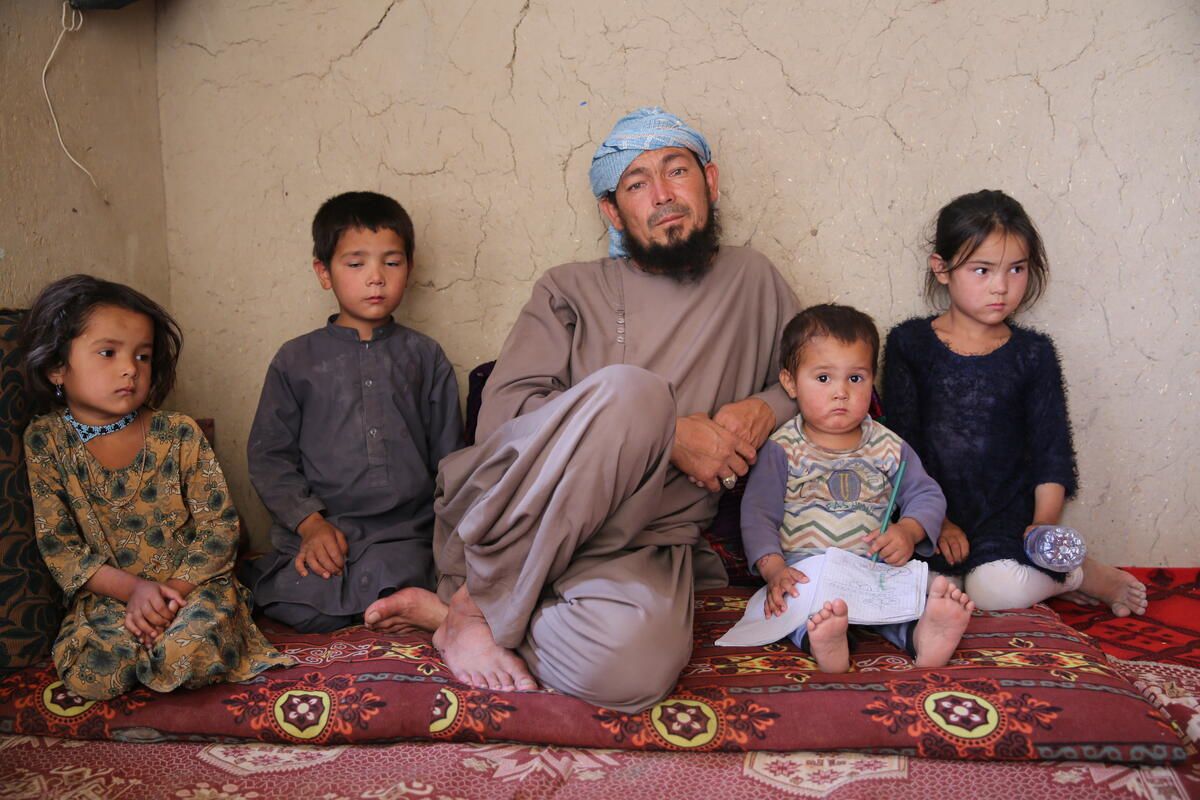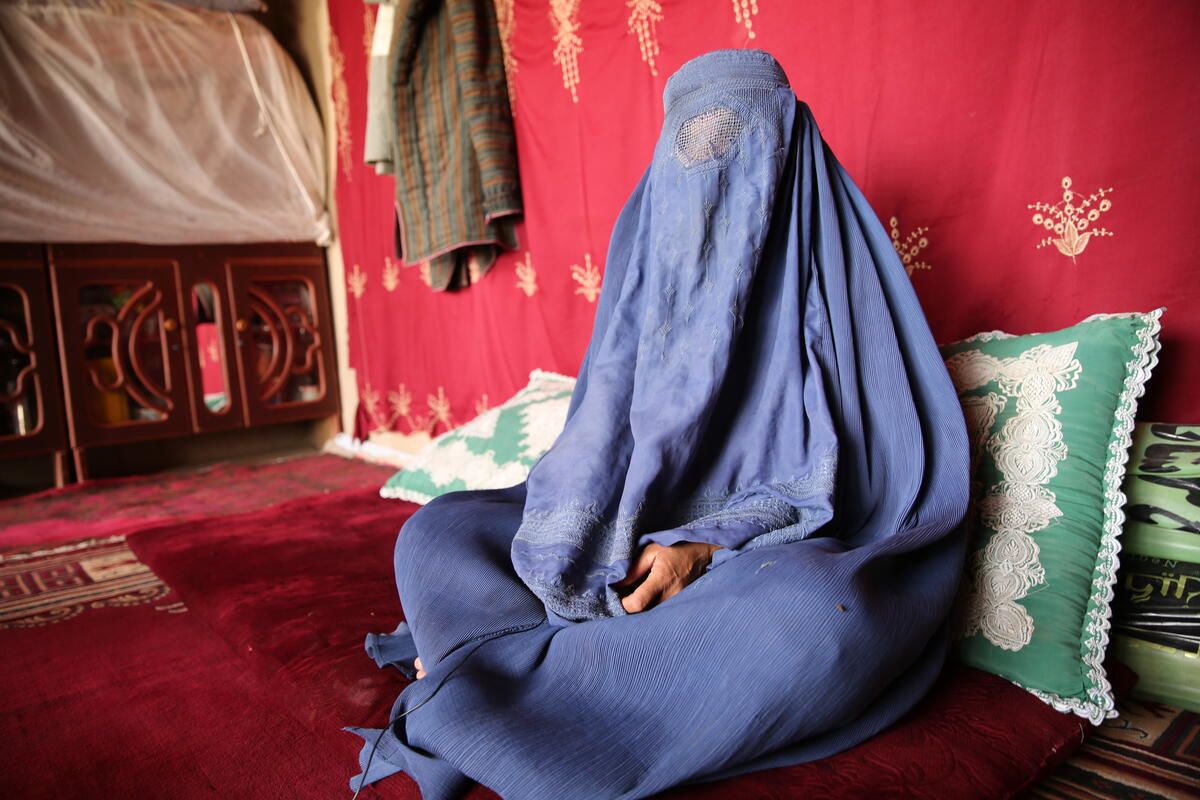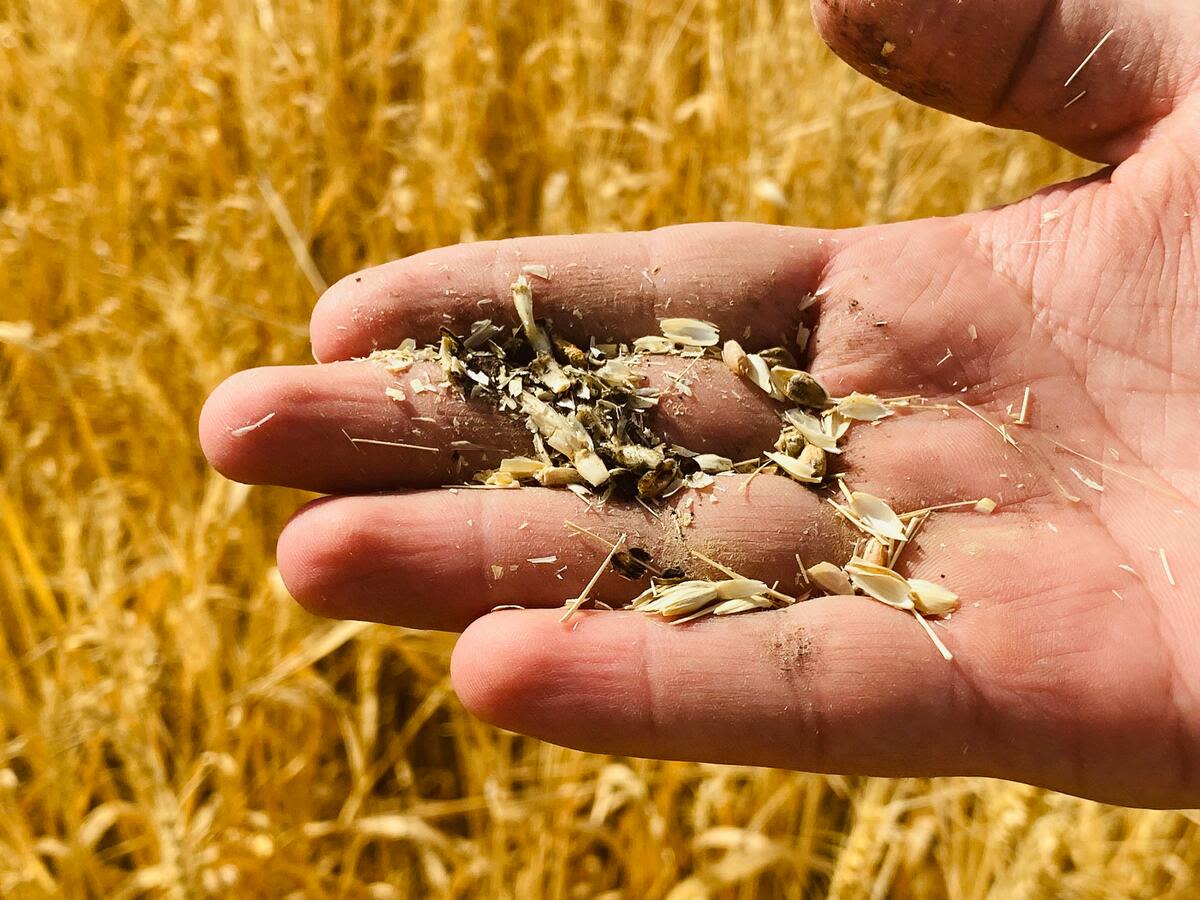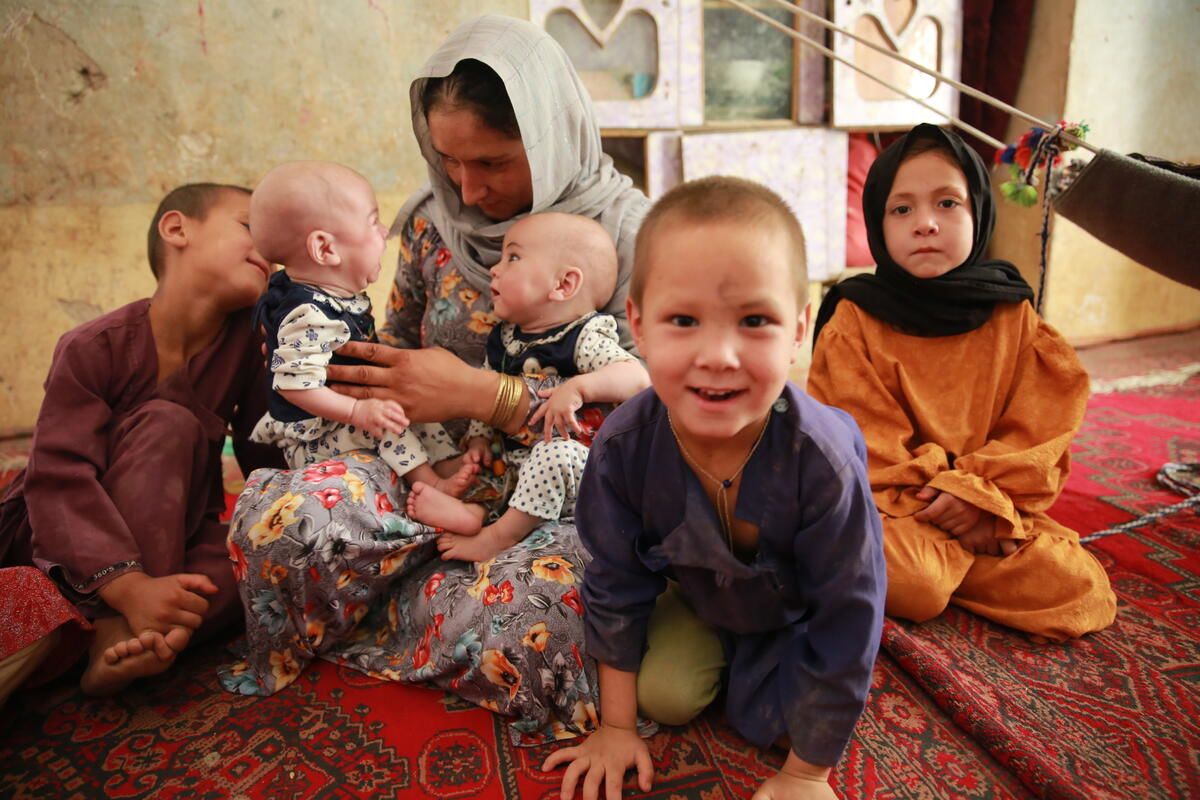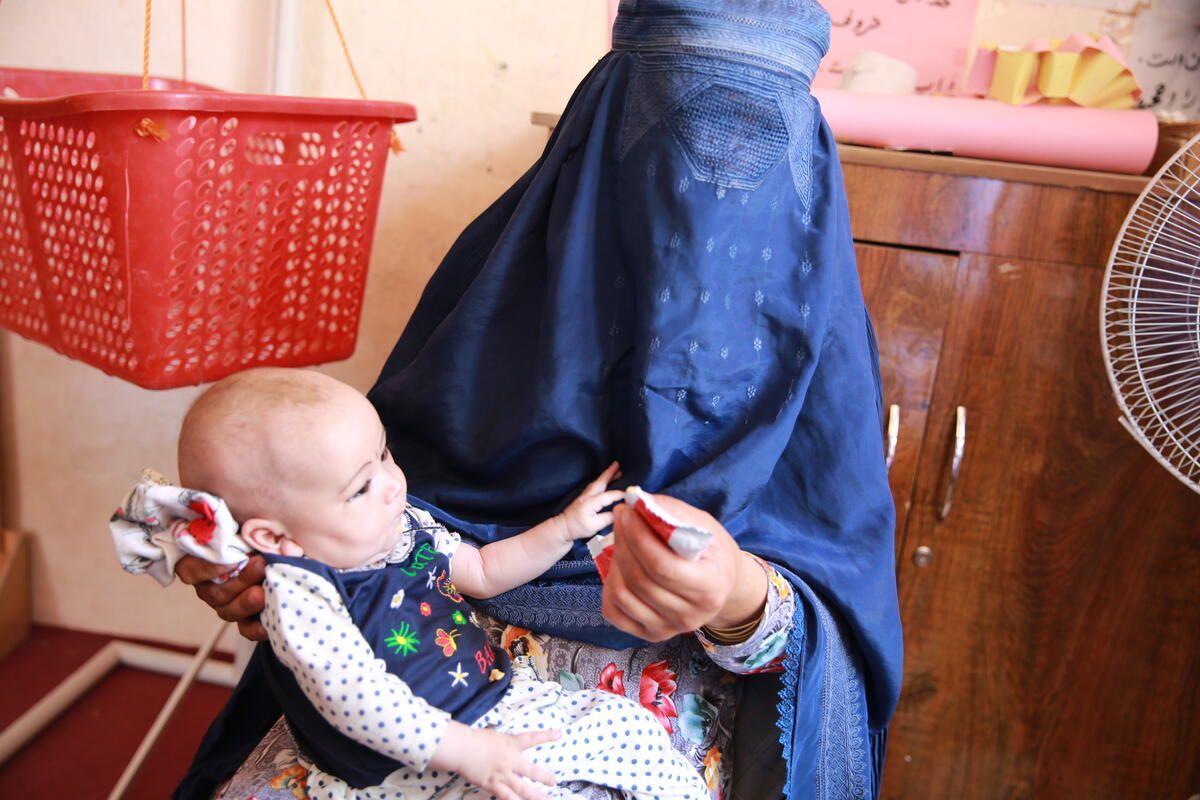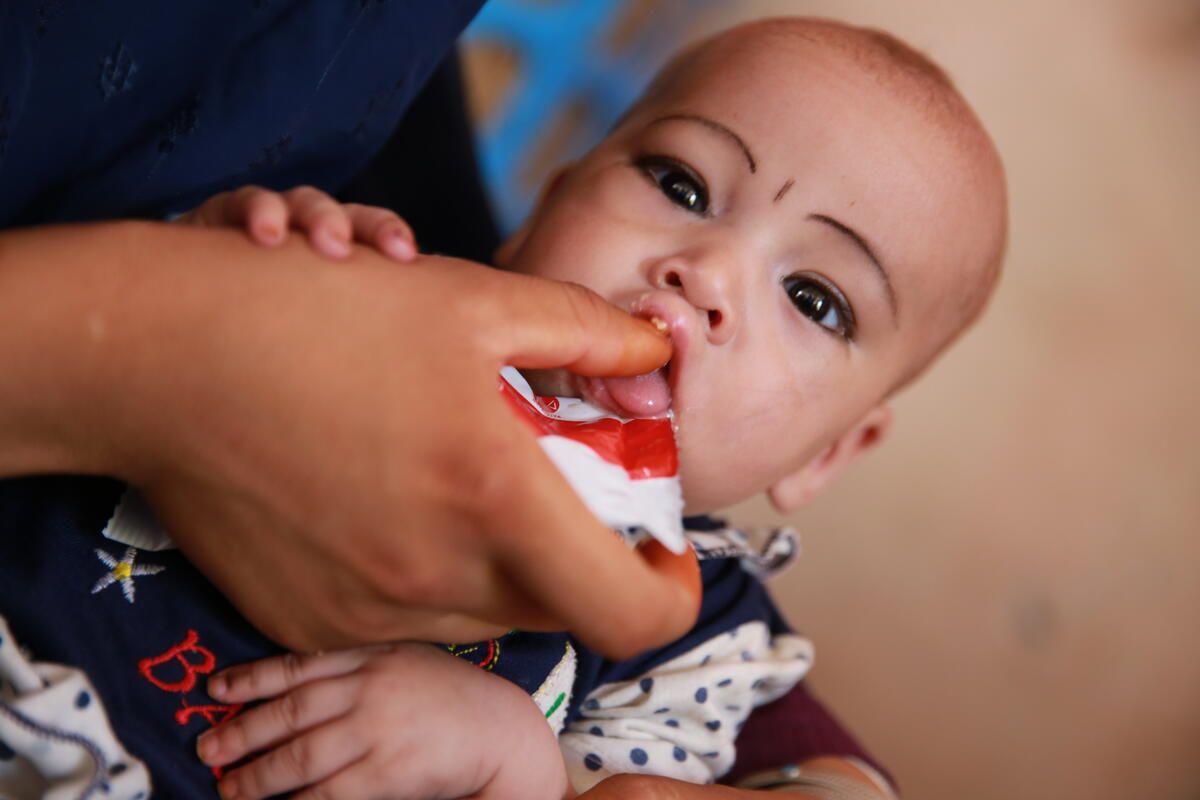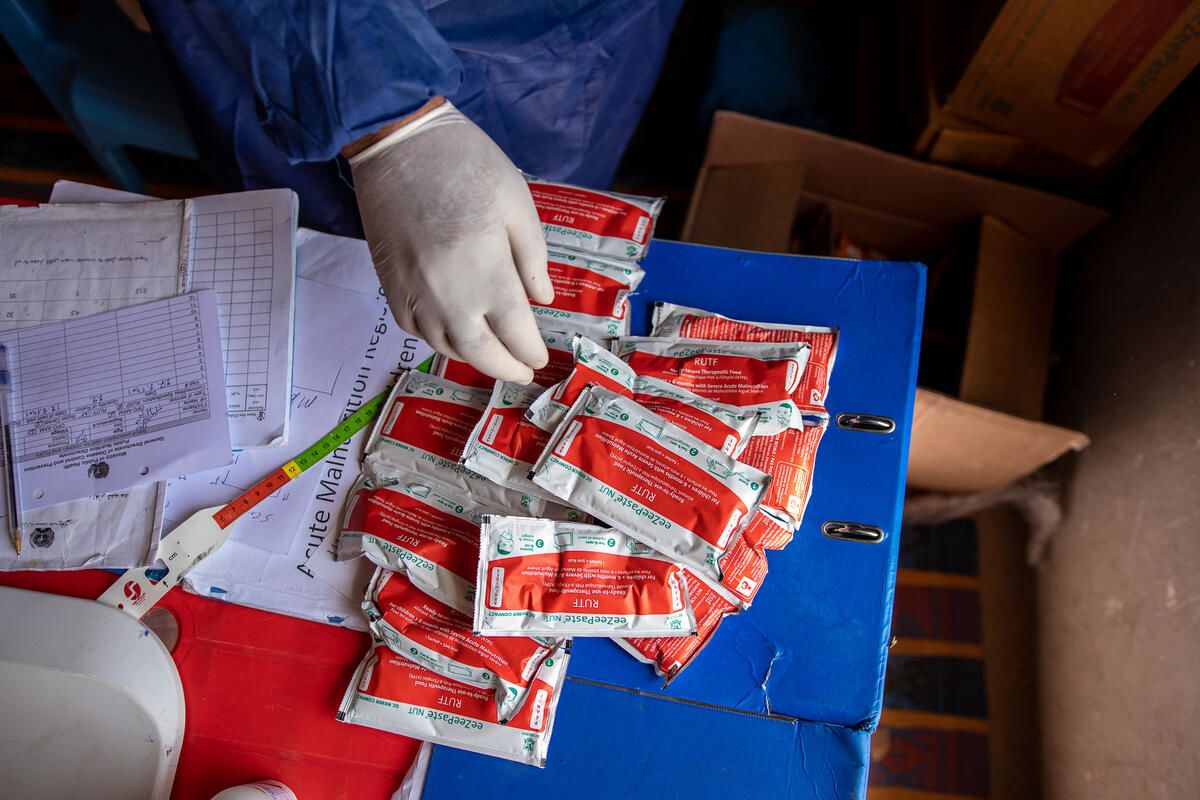Life in Afghanistan Since the Taliban Returned to Power
Stories from Afghanistan's hungry children
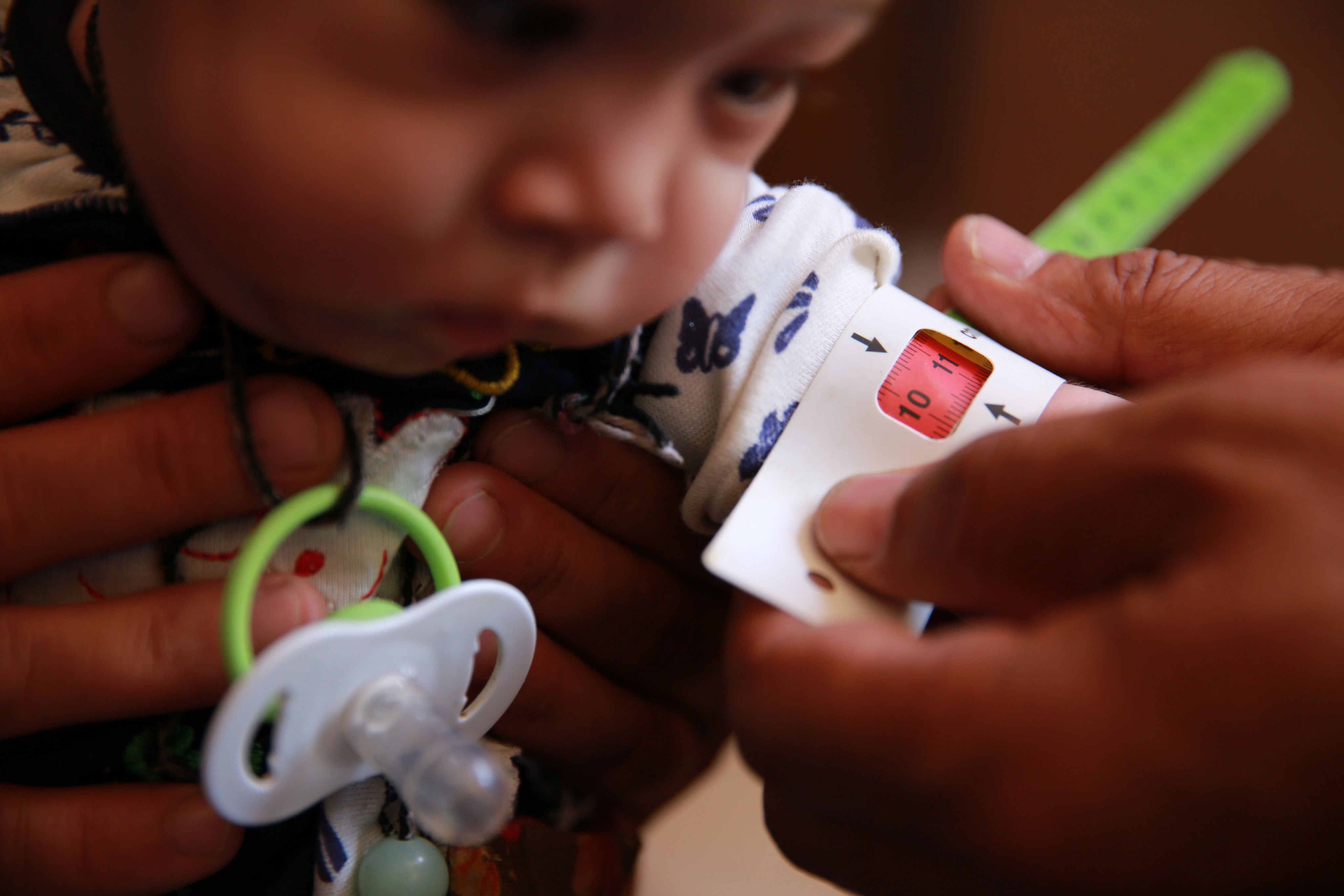
August 2023 marks 2 years since the Taliban regained control of Afghanistan.
Decades of conflict, poverty, drought, a lack of social services and the interruption of foreign aid have pushed the people of Afghanistan into a humanitarian catastrophe and left the country suffering one of the worst food crises ever recorded. The scale and severity of the current crisis is like nothing we have ever seen before.
1 in 3 Afghans face emergency levels of hunger.
This is forcing families to take desperate measures just to survive.
More than 2 out of every 5 children under the age of 5 face acute malnutrition.
This includes children like 1-year-old Shayesta* and 8-month-old twins Nahida* and Nadira*.
* Names changed to protect identity.
Continue scrolling or click the menu along the top to read the stories of children in Afghanistan and how Save the Children has been able to help.
Note: All text written in italics are direct quotes.
Shayesta*'s story
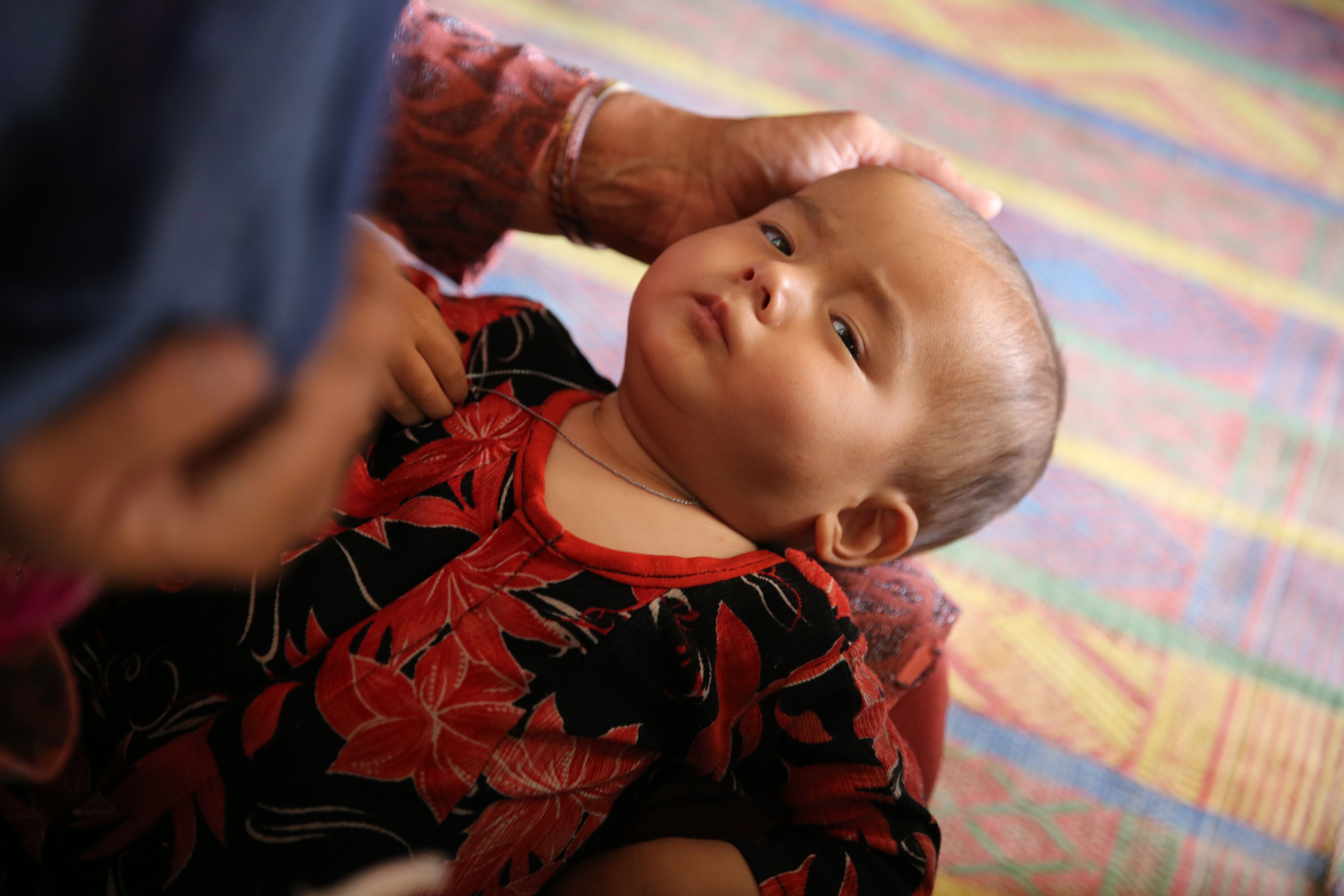
1-year-old Shayesta* lives with her mother Zahida*, her father Khalid*, and her eight siblings in a rural village in northern Afghanistan.
Life is extremely difficult for the family. Zahida and Khalid often struggle to feed their children. There are no jobs in their village, so Khalid travels to the closest city to find employment, but it is often unreliable. Most days the family survive on tea and bread alone.
From left to right: Wazhma* (5), Mujib* (6), Khalid* (40), Amir* (2) and Mozhda* (8) in their house. Photo: Shekiba Mohammadi / Save the Children.
From left to right: Wazhma* (5), Mujib* (6), Khalid* (40), Amir* (2) and Mozhda* (8) in their house. Photo: Shekiba Mohammadi / Save the Children.
Six months ago, the family tragically lost Shayesta’s sister Benafsha*, who was just 18 months old. Shayesta is now also suffering from malnutrition. Zahida worries about how thin and weak her children have become.
Zahida*,35, Shayesta*'s mother, at her house. Photo: Shekiba Mohammadi / Save the Children.
Zahida*,35, Shayesta*'s mother, at her house. Photo: Shekiba Mohammadi / Save the Children.
Here, Zahida and Khalid share their story in their own words and talk about their worries for Shayesta and their family.
In Zahida’s own words
There have been times in our life when we couldn’t afford bread.
If I can’t provide my children with food, clothes and medicine, what else can I do for them?
Shayesta is very thin and not good. I am scared. I have already lost one child and I don’t want to lose my second child.
My children ask their father to bring them melon and watermelon, but we can’t afford it, I want them to be healthy.
Afghanistan is experiencing the worst drought it has seen for 30 years which has caused crops to fail, livestock to die and put food and water further out of reach for children and their families. It is one of the world’s starkest illustrations of the deadly toll that the climate crisis is having on families who depend on agriculture in order to survive.
Shayesta's father Khalid explains how the drought has got worse in recent years and impacted agriculture in the village.
A farmer holding dry wheat grains to show the impact of drought on a wheat farm in the community where Shayesta* (1) lives. Photo: Shekiba Mohammadi / Save the Children
A farmer holding dry wheat grains to show the impact of drought on a wheat farm in the community where Shayesta* (1) lives. Photo: Shekiba Mohammadi / Save the Children
In Khalid’s own words
Our biggest problem in life is a lack of food, water and bread. If there is no bread, people will die of hunger. If there is no water, on these hot summer days, people will die from thirst. All people rush to wells for water - they even fight over the water.
There’s no agriculture here, and farmers can’t harvest half of what they plant. Two years ago, it was good. But somehow for the last two years, three including this year, there’s no agriculture.
In our village we could harvest the best melons, the sweetness was outstanding. If you ate one of those melons, it gave you nutrients. Now we don’t have that here, we don’t have any fruit trees in our village... the best thing we have for food is potato - if we can afford it.
Right now, we need food.
How Save the Children is helping Shayesta and her family
Doctors from Save the Children’s Mobile Health Team are now treating Shayesta for malnutrition. The Mobile Health Team visit the family’s village once a week, providing primary, newborn and maternal healthcare, nutrition and mental health services. This includes providing treatment for malnutrition and vital immunisation services to protect children from infection and disease.
Please donate to our Children´s Emergency Fund to help children like Shayesta today.
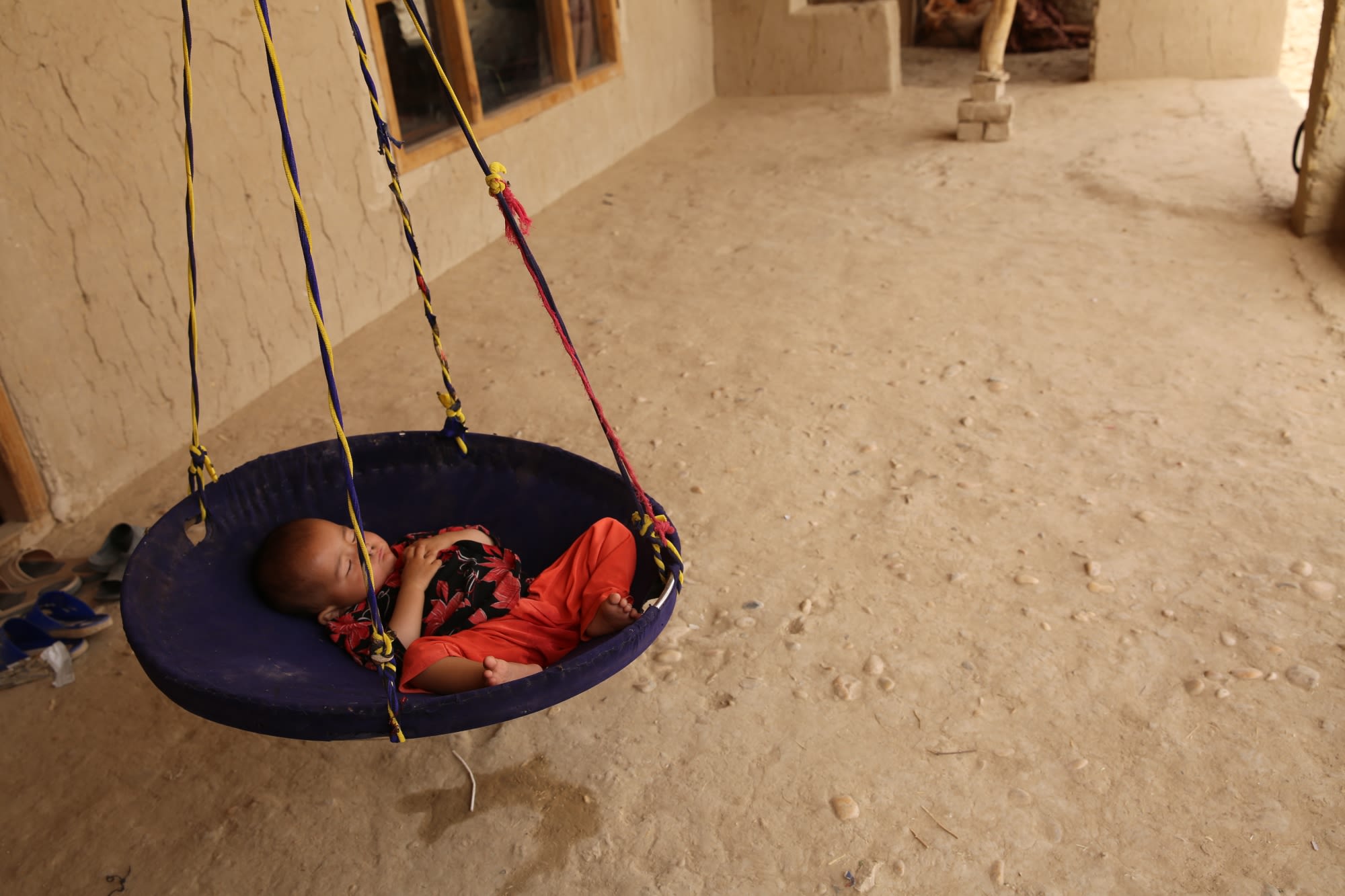
Nahida* and Nadira*'s story
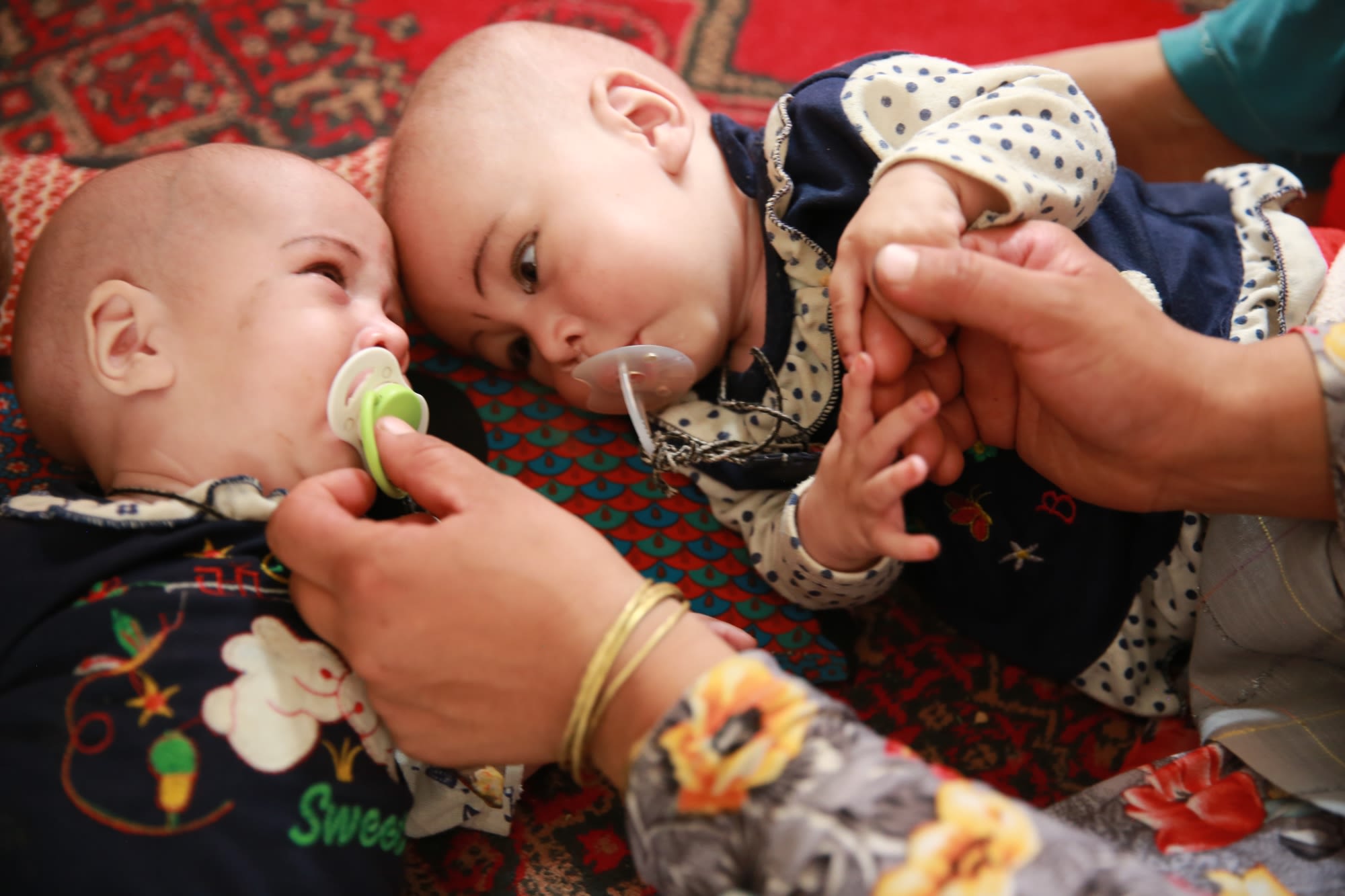
Twin girls Nahida* and Nadira* live in a rural village in northern Afghanistan with their mother Sajida*, father Ali* and their five siblings.
From Left to Right: Farhad* (8), Nahida* and Nadira (8 months), Sajida* (31), Fawad*(4) and Zahra*(10) at their house. Photo: Shekiba Mohammadi / Save the Children.
From Left to Right: Farhad* (8), Nahida* and Nadira (8 months), Sajida* (31), Fawad*(4) and Zahra*(10) at their house. Photo: Shekiba Mohammadi / Save the Children.
Their village has been hit hard by severe drought and the economic crisis. Many families struggle to survive.
Sajida tells us that her children are always sick and twin girls Nahida and Nadira have both been diagnosed with severe acute malnutrition.
Sajida (31) visited Save the Children's Mobile Health Team with twin children, Nahida and Nadira (8 months), for malnutrition screening. Photo: Shekiba Mohammadi / Save the Children.
Sajida (31) visited Save the Children's Mobile Health Team with twin children, Nahida and Nadira (8 months), for malnutrition screening. Photo: Shekiba Mohammadi / Save the Children.
Here, Sajida shares their story in her own words.
Sajida
At the end of the month, my husband does not know whether to pay rent or buy something for our children.
Life is really hard when you have seven children to feed, and you cannot earn enough to provide good food for them.
My children come and say to me: “Mum, we don’t want to eat boiled rice. Give us potato fries.” But with teary eyes, I say: “I wish we had potatoes in the kitchen.”
They are very young, and they don’t know what it means to be poor and not have money to buy potatoes. I can’t give them a good life, not even a portion of good food.
The twins' health got worse, and they started vomiting most of the time. They had pneumonia and a fever.
We don’t have a hospital here... my neighbour told me to take my children to the [Save the Children] clinic.
The doctor gave us this Plumpy'Nut and suggested I give this to them (the twins) with water.
Nahida* (8 months), tasting Plumpy'Nut provided by a mobile health team of Save the Children. Photo: Shekiba Mohammadi / Save the Children.
Nahida* (8 months), tasting Plumpy'Nut provided by a mobile health team of Save the Children. Photo: Shekiba Mohammadi / Save the Children.
I am not the only family with thin children. All our neighbours take their children to that clinic, and they get medicine and Plumpy'Nut.
Day by day, life is becoming worse in this village. Every night when I go to bed I think about tomorrow and what to give my children.
How Save the Children is helping Nahida and Nadira
Nahida and Nadira are now receiving treatment for malnutrition at a Save the Children mobile clinic, which visits their community regularly. They have received a supply of Plumpy'Nut which is a therapeutic peanut paste that provides malnourished children with essential vitamins, minerals and calories to help them survive and recover.
A Save the Children doctor in Afghanistan prepares Plumpy'Nut therapeutic peanut paste to treat severe acute malnutrition. Photo: Sacha Myers / Save the Children.
A Save the Children doctor in Afghanistan prepares Plumpy'Nut therapeutic peanut paste to treat severe acute malnutrition. Photo: Sacha Myers / Save the Children.
Ibrahim* is a Save the Children doctor who is treating the twins. He tells us:
Ibrahim
In this mobile health clinic, we have more patients in the nutrition section compared to other sections. The main reason is hunger and drought in this village.
The patients I see on a daily basis are often suffering from vomiting, pneumonia, and a high fever.
We treat them until they are fully recovered, and when they have recovered, we will give the parents advice on how to feed children healthy food.
As a nutrition doctor, it is always difficult for me to see more children suffering from poverty and bad back-to-back drought.
Hunger is a harsh reality in Afghanistan, and it impacts children more. I hope this situation changes one day and that there won’t be any malnourished children visiting our clinic.
Please donate to our Children´s Emergency Fund to help children like Nahida and Nadira today.
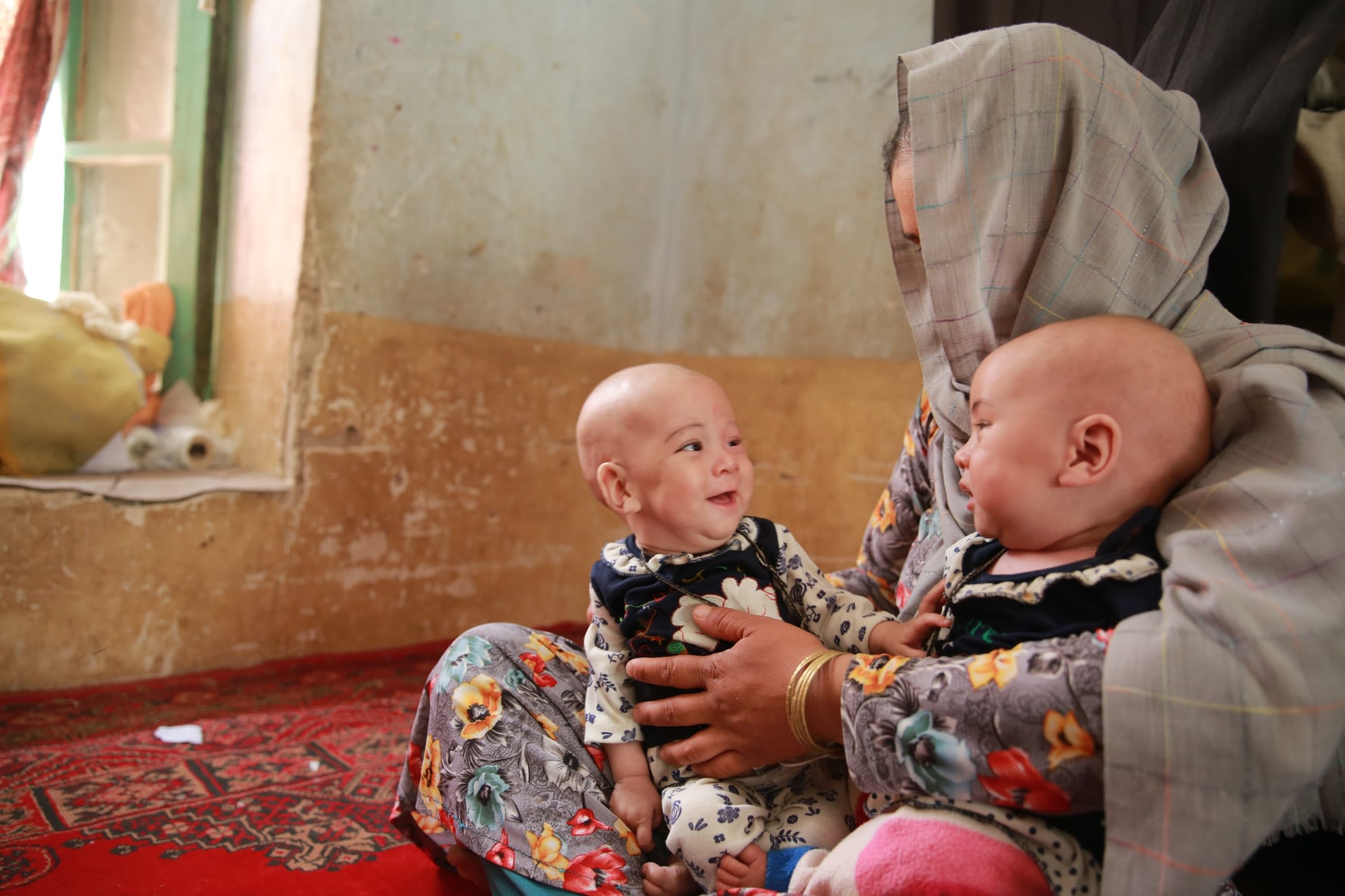
What we’re doing about it
Since August 2021, Save the Children has been scaling up our response in Afghanistan to support the increasing number of children in need.
We’re delivering health, nutrition, education, child protection, shelter, water, sanitation and hygiene and food security, and livelihood support. The Mobile Health Teams are providing services to families like Shayesta's and Nahida and Nadira's. These are supported by Save the Children’s Emergency Fund. The fund has allowed Save the Children to continue providing life-saving healthcare for children and their families when they need it most.
How you can help
Now is not the time to abandon children in Afghanistan. Please donate to our Children´s Emergency Fund to help children like Shayesta, Nahida and Nadira today.
Your donation to our Children's Emergency Fund will allow our response teams to react quickly to emergencies around the world.
$40 could provide a 4-week supply of high-nutrient Plumpy'Nut peanut paste to help treat a child with severe acute malnutrition.
